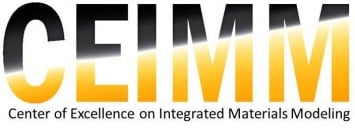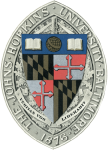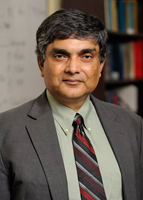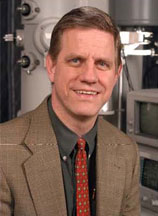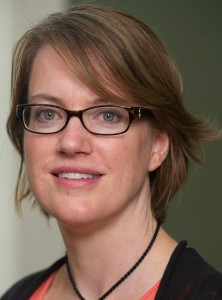The Johns Hopkins University
-
Michael G. Callas Chair Professor
Director, Computational Mechanics Research Laboratory (CMRL)
Department of Civil Engineering
Department of Mechanical Engineering
Johns Hopkins University
203 Latrobe | 3400 N. Charles Street
Baltimore, MD 21218
e-mail: sghosh20@jhu.edu
websites: http://cmrl.jhu.edu & http://cismms.jhu.eduAREAS OF SPECIALIZATION AND INTEREST
Computational Mechanics Modeling with focus on multi-scale structure-materials analysis, and simulations, multi-physics modeling and simulation of multifunctional materials, materials characterization, process modeling, emerging fields like Integrated Computational Materials Engineering (ICME). Specific areas of interest include:
- Multiple Spatial and Temporal Scale Modeling and Simulations of Mechanical-Electro-Magnetic Phenomena, Applied to Antenna and Sensor Applications
- Multiple Spatial and Temporal Scale Image-based Modeling of Polycrystalline Materials
- Multiple Spatial and Temporal Scale Image-Based Modeling of Composite Materials
- Multi-Scale Material Characterization and Virtual Image Simulation
- Fatigue and Life Prediction of Metals and Composites with Experimental Integration
- Brittle and ductile Failures of Heterogeneous Materials
- Instabilities in Thermal Barrier Coatings
- Molecular Dynamics Simulations of Polymeric and Metallic Materials
- Probabilistic Methods in Multi-Scale Modeling
- Metal Forming and Materials Processing Simulation and Design
- Novel Finite Element Model Development with Adaptivity
- Biomaterials and Design of Bio-Implant and Prosthetics
-
The Alonzo G. Decker Professor, Mechanical Engineering
Professor, Materials Science and Engineering /Earth and Planetary Sciences
Johns Hopkins University
223 Latrobe | 3400 N. Charles Street
Baltimore, MD 21218
e-mail: hemker@jhu.eduAREAS OF SPECIALIZATION AND INTEREST
- Traditional interests include: high temperature mechanical behavior, transmission electron microscopy, deformation behavior of intermetallic alloys, experimental characterization of dislocation core structure, and microsample testing.
- Research aimed at identifying the microstructural details that govern the macroscopic mechanical response of metals, alloys and advanced structural materials.
- Relatively new research topics include the characterization and modeling of bond coat layers for thermal barrier coatings, deformation behavior of nanocrystalline materials, and characterization of materials for MEMS applications.
-
Professor
Department of Civil Engineering
Department of Mechanical Engineering
Director, Modeling Complex Systems IGERT Program (MCS IGERT)
Associate Director, Hopkins Extreme Materials Institute (HEMI)Johns Hopkins University
206 Latrobe | 3400 N. Charles Street
Baltimore, MD 21218
e-mail: lori@jhu.edu
website: http://www.ce.jhu.edu/lori/AREAS OF SPECIALIZATION AND INTEREST
Primary interest and expertise in computational stochastic mechanics with a number of focus areas:
- Stochastic simulation of statistically equivalent microstructures, including multi-phase and polycrystalline materials
- Probabilistic multi-scaling and homogenization of materials with random microstructure
- High-rate fracture and anisotropic damage of brittle materials
- UQ for experimental characterization of material microstructure
- Fragmentation of structural materials
-
Associate Professor
Director, Computational and Experimental Materials Engineering Laboratory (CEMEL)
Department of Mechanical Engineering
Johns Hopkins University
124 Latrobe | 3400 N. Charles Street
Baltimore, MD 21218
e-mail: jelawady@jhu.edu
website: CEMELAREAS OF SPECIALIZATION AND INTEREST
The primary focus is to develop a fundamental understanding of the underlying deformation mechanism in materials. The goal is to enhance the field of Materials-by-Design, by moving from empirical, trial-and-error development techniques of materials, to a combination of state of the art multiscale computational methods and experimental techniques that can result in expediting the process of developing reliable materials with superior performance.
- Atomistic and Discrete Dislocation Dynamics Modeling of Mechanical Twinning and Plasticity in Magnesium
- Micro-Mechanics Modeling of Surface Roughness Evolution and Subsequent Crack-Initiation under Thermo-Mechanical Fatigue
- Multiscale Modeling and Experiments of Size Effects in Single Crystals Metals
- Micromechanical Testing of Ultra High Strength Materials
- Multi-scale Modeling of Hydrogen Embrittlement
